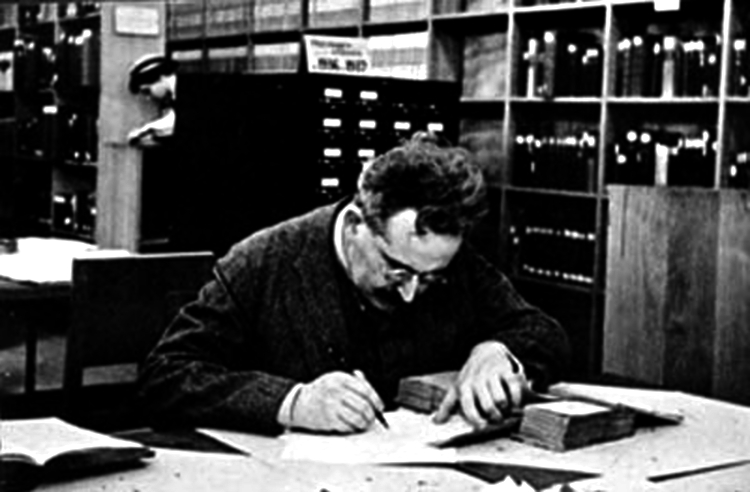There have been many arguments made about the politics of authorship. Yet few of those situated it as long ago as Walter Benjamin did, not only in relation to labor, but in terms of the changing economic patterns and technologies that served to redefine both authorship and labor and, for that matter, any distinctions between them. This, in brief, is Benjamin’s singular contribution to a discussion about authorship.
The material distinction between the categories of ‘worker’ and ‘author’ were not at all clear for Benjamin. He, along with an increasing number of others at the time, made a somewhat precarious living from writing. As did Marx a century before that, more or less—and in whose writings the concept of ‘productive labor’ was at least generous enough to be extended as far as wage contracts were in his day. And, in this sense as in many others, the issue of contracts is at the center of the question of authorship, since all contracts assume the authority to sign one’s name. When literacy was not as widespread in Europe and its various colonies though contracts were becoming ubiquitous, consent could be registered by making the sign of a cross. The politics of authorship have long played out in close proximity to transcendental understandings of signification, and only more recently in terms of a semiotic economy and the material production of signs.
In his 1934 essay, “The Author as Producer,” Benjamin argued that a specifically communist politics of authorship did not emerge—as others at the time contended and some perhaps still do—from any particular content or prescribed form. The 1930s, of course, were replete with debates over aesthetics and politics. Communist and National Socialist parties were both engaged in issuing oftentimes lethal decrees regarding genre, style, content and form. Benjamin, being neither a Leninist nor a Fascist, suggested that deriving a politics of authorship from the notion of the activist author, as Bolsheviks from Lenin to Trotsky have insisted, wrongly situated intellectuals as the vanguard of the proletariat: “The slogan which summarizes the demands of activism is ‘logocracy’, that is, the power of the intellect. Power to the intellect. The expression could well be translated as the power of the intellectuals.” By that definition, the practice of political writing entails little more than churning out propaganda; which is to say: the kind of writing that assumes that readers are never also or ever writers and—more bizarrely but present as its logical presumption—that no one ever went through a process of learning to either read or write in any particular language or idiom, or ever might. Far from eroding the division between writer and reader, this theory of authorship reinstated it as a functional aspect of militancy. Still, if the very category of ‘the author’ emerged in the wake of a decline of a transcendental understanding of signification and the prevalence of the scriptural text, both liberalism and Leninism nevertheless converged around restoring a magical view of authorship by granting a causative power to intellect, or ‘the right ideas’ and ‘true consciousness.’
Moreover, while Leninism often involved injunctions against complexity or difficulty, this was never due to an affinity with proletarian sensibilities—whatever those might be—but because it assumed that a communist practice of authorship by necessity and inclination involved speaking down to readers. Intellectuals, by Lenin’s account, could be distinguished by their function of instructing others in what is to be done, much as a manager in the workplace does. Alternately, the more radical variants of liberalism tended, as did Spinoza, to include a kind of parental guidance warning in their preambles, insisting that those of their writings which were particularly critical of the established powers were not meant for a general reader.
But in the midst of the predominance of these arguments from both Left and Right, Benjamin concluded that the politics of an author might instead be discerned from the extent of their reflection on their place “in the process of production.” “We can be sure of this,” he argued, that “this reflection sooner or later leads the writers who are essential, that is, the best technicians of their trade, to conclusions and positions which are the basis of their trustworthy solidarity with the proletariat.” While Benjamin’s polemic seems in some respects to be restricted to the shifting instance of that time and place, the question he posed about the specific position of authorship in the processes of production re-emerges in Roland Barthes’ 1967 similarly polemical essay, “The Death of the Author,” and in that way both critically mark out a series of historical changes to authorship, production and, in particular, the legal and implied contracts that affix one to the other.



One thought on “Walter Benjamin’s “The Author As Producer””